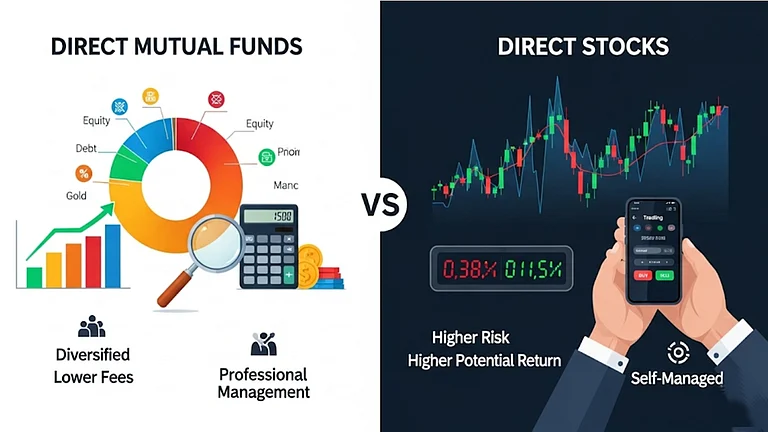Your corpus will continue to grow until you reach your financial goals if you make consistent investment contributions regardless of market conditions. Staying committed to your investments remains more important than speed because consistent dedication may lead to financial independence.
Freedom Through Funds: How Disciplined Mutual Fund Investing May Build Wealth Over Time
Mutual funds represent one of the most successful methods to achieve financial independence through disciplined investing. Your savings, however, need to start early because compounding will help your money increase its value over time.
People who become financially independent start their days without considering any financial restrictions before making any purchase. Sounds amazing, right? Financial independence requires us to work toward this objective.
The state of financial independence represents both an achievement and a way of thinking. Financial independence means you can make life choices based on personal values instead of financial constraints.
According to financial and industry experts, mutual funds represent one of the most successful methods to achieve financial independence through disciplined investing.
“Your savings, however, need to start early because compounding will help your money increase its value over time. Your investment portfolio needs to match your life stage together with your financial objectives and your willingness to take risks,” says Deepak Agrawal, CIO - Fixed Income and Head Products at Kotak Mutual Fund.
Multiple investment categories that include equities, bonds and gold/silver provide balanced growth potential through diversified risk management.
The ‘100 minus age’ method helps you decide your equity exposure percentage by subtracting your age from 100 and dedicating the rest to safer investment options. This approach helps you create a retirement savings fund with achievable deadlines which transforms vague investment goals into concrete objectives.
After establishing your base, you must select investment vehicles which match your strategic plan. “Investors who want to access the stock market through professional management can use equity mutual funds as their entry point. Your core portfolio should primarily consist of market-cap-based equity or hybrid/ multi-asset funds, whereas your satellite holdings should include sector or thematic funds,” suggests Agrawal.
Hybrid and multi-asset funds combine different investment assets between equities and debt to optimise returns through risk management. The importance of debt-oriented funds increases when investors focus on capital protection and steady income generation because they deliver both stability along with consistent cash flow.
You also need to take into consideration the tax efficiency of a fund. Equity funds typically deliver better inflation-beating returns alongside lower tax rates, yet their higher volatility contrasts with debt funds which offer stable returns but higher taxation. “The Fund of Fund – Income Plus Arbitrage stands out among investment products because it provides steady returns through debt (<=65 per cent) and equity arbitrage (>= 35 per cent) with tax benefits. Your investment decision should always align with your specific requirements, together with your objectives and risk tolerance level,” says Agrawal.
The path to financial freedom requires more than seeking immediate profit opportunities. Staying invested with purpose requires disciplined commitment.
A Systematic Investment Plan (SIP) serves as a strong investment strategy because it automatically maintains your contributions and protects your investments from market fluctuations that allow for purchase opportunities.
Your corpus will continue to grow until you reach your financial goals if you make consistent investment contributions regardless of market conditions. Staying committed to your investments remains more important than speed because consistent dedication may lead to financial independence!
